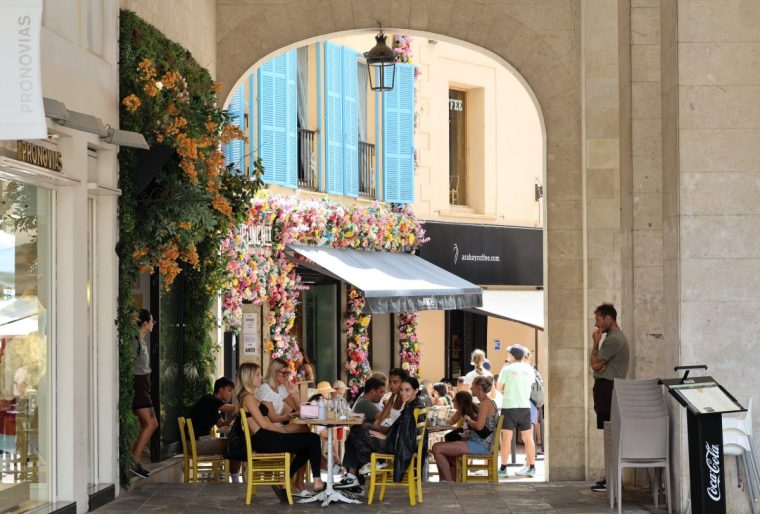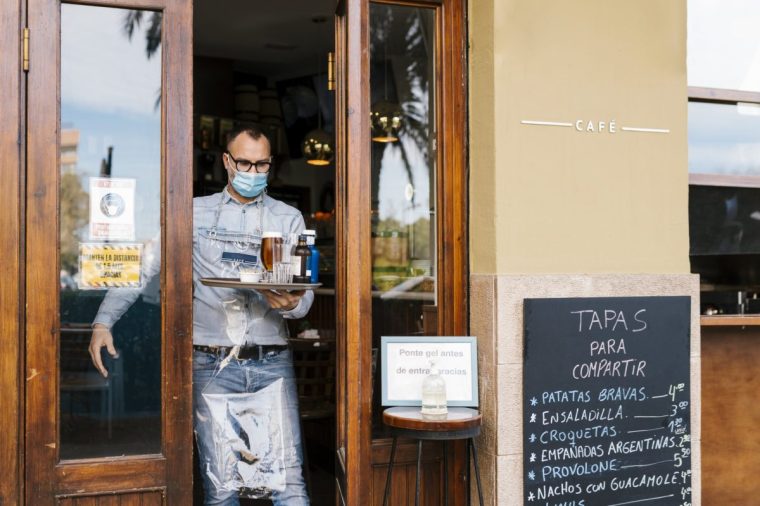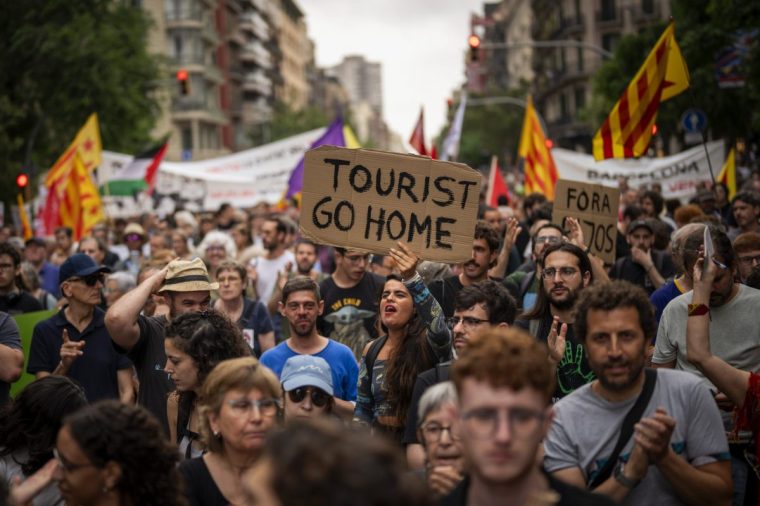Tourists are tightening their belts and forgoing typical holiday experiences such as eating out in restaurants
MADRID – British tourists in Spain are resorting to eating supermarket picnics in their hotel rooms to save money as prices for eating out and other treats surge.
Holidaymakers from countries including Britain, which accounts for the most visitors to Spain, have been forced to tighten their belts and forgo typical holiday experiences such as eating out in restaurants, industry figures suggest.
Many countries across Europe have gone through several economically-difficult years of high inflation and a cost of living crisis, eating into tourists’ spending power.
Although tourists are visiting Spain in record numbers, they are spending less, according to hospitality bosses, who are bracing for lower takings this year.
Some 50 per cent of restaurateurs and hoteliers in Barcelona expect a drop in revenue compared with 2024, according to a survey by the tourism body Barcelona Oberta.

This was despite Spain welcoming a record number of international tourists in the first six months of 2025 – nearly 44.5 million visitors – up 4.7 per cent on the same period in 2024, according to data from the Spanish National Statistics Institute.
Kenneth Calendar, 56, who travelled to Barcelona from Edinburgh this summer, said his family had saved money by eating out only in the evenings.
“We love the city but it is not cheap,” he told The i Paper. “We have cut back a bit by doing picnics then eating out at night.”
Eduard Solé, a restaurateur in Barcelona, said: “The hotel rooms have become more expensive and inflation has gone up in many countries. This year the spending power of many tourists is less.
“We have also heard that they go out to eat or drink less or buy food from supermarkets and eat half their meals in the hotel rooms.”

Kate Preston, a British businesswoman who runs seven restaurants in Barcelona, said takings were down across her businesses by between 10 and 20 per cent.
“I don’t know the figures but I would say there are less [tourists] and they are definitely spending less,” she told The i Paper.
“We have barely raised our prices since Covid and so would not be considered expensive and our takings are still down – depending on the restaurant between 10 and 20 per cent.
“That is considerable and may well affect future investments. July and August in Barcelona traditionally brings a type of tourist that spends much less but this year is much worse.”
However, Luis Sans, of the Passeig de Gràcia Association – which represents traders on Barcelona’s luxury shopping street, home to brands such as Chanel and Louis Vuitton – said wealthy tourists were also reducing their expenses.

“We still don’t have figures about how much people are spending but it seems that this year there are fewer high-spending tourists and that the spending is lower,” he told The i Paper.
The Spanish tourism industry group Exceltur said in July that it expected growth in summer sales to slow sharply due to uncertainty over US tariff negotiations, though it still forecast record visitor numbers.
It projected fewer arrivals from Germany and France, but visitors from the UK, US, Japan, and China are still predicted to grow, if at a slower pace.
The World Travel and Tourism Council, which represents the travel industry’s private sector, expects a record-breaking 100 million visitors to Spain in 2025.
Spain is already struggling to balance the success of its tourism industry, which accounts for about 13 per cent of GDP, with the impact on local communities.
Since last year, protests calling for curbs on mass tourism have been held in cities across Spain, including Barcelona and Malaga, along with holiday destinations such as the Balearic and Canary islands.
Campaigners have blamed the industry for pushing up housing costs, arguing that the rise of rental properties has restricted the supply of long-term accommodation.
In the face of growing pressure, Spain’s consumer affair ministry ordered Airbnb to remove the listings of 65,000 illegal lettings across the country this year.
It threatened the company with fines of €100,000 (£84,000), or up to six times the value of the profits made from the illegal flats, if it failed to comply.
Concerns have also been raised about the impact of tourism on the environment, particularly in the Balearic Islands, which struggles with waste disposal due to visitor numbers.
In March, the regional government announced plans to increase its tourist tax and put a new levy on hire cars in an effort to alleviate the pressure on infrastructure.
